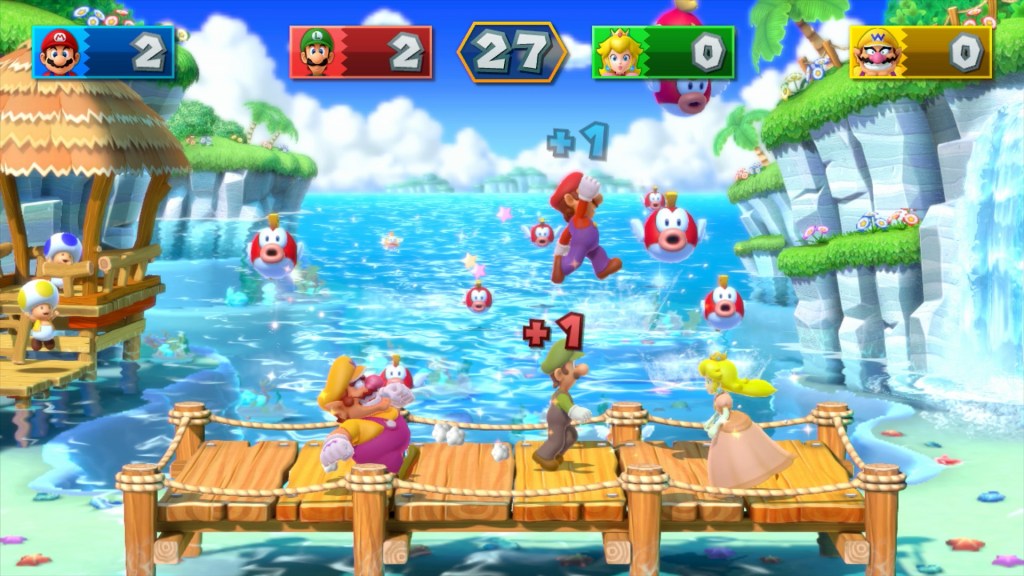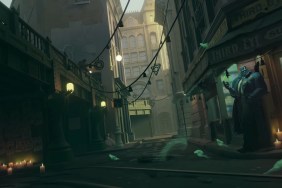On the Wednesday of E3 2013, I recall waiting for a special Nintendo meeting. This was the first year they chose not to do a big pre-E3 press event, and the buzz was little more than a funeral requiem, even among the attendees of the meeting. “This isn’t that big of a deal,” said the naysayers of the meeting. “Nintendo doesn’t have much to offer anymore. They don’t have the third-party backing,” they said. “This will probably be the last we see of them.”
Two years later, it’s hard to find those people speaking up as loudly as they used to. Nintendo is once again a big deal, and has once again become a profitable venture. Add in the forthcoming New 3DS in Europe and North America, along with amiibo, which has sort of a cult following at this moment, and it’s clear to see that the Mario Machine has no intention of hitting Game Over anytime soon.
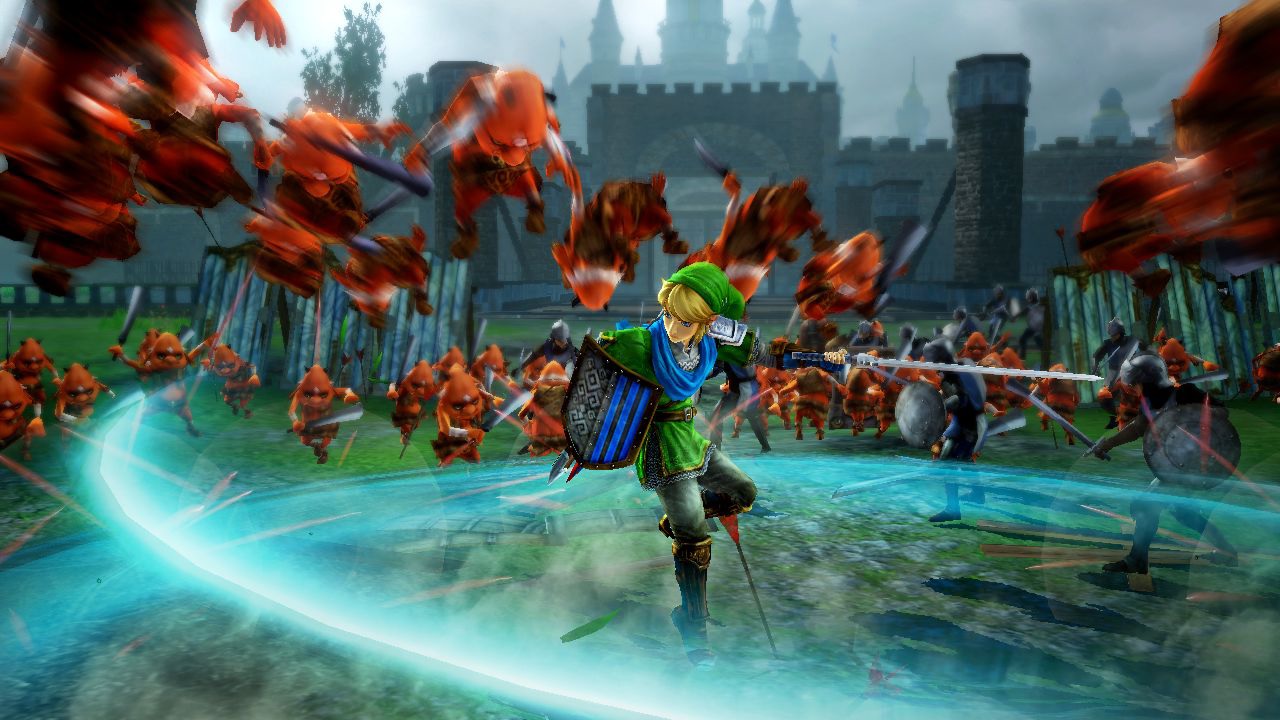
Go With What Works
Those who have been engrossed with the FX hit American Horror Story have seen the same group of people – Jessica Lange, Angela Bassett, Kathy Bates, Taissa Farminga, etc. – cast in several disturbing scenarios. But be it a house full of murder, an insane asylum, a witches’ coven, or a carnival freak show, these same people evoke different experiences unique of each other, creating quality television each season.
Nintendo has long done the same: take the same cast of characters and put them in different situations that create unique experiences. Most notably over the past year, Nintendo gave us Hyrule Warriors, a mash-up of Dynasty Warriors with the classic Legend of Zelda series. Link fights alongside Princess Zelda and her alter-ego, Sheik, as well as Impa, Midna, and even Agatha the bug girl in a completely new adventure crafted from established characters. Recently, Nintendo also unveiled Captain Toad: Treasure Tracker, starring Princess Peach’s right-hand Mushroom Retainer, Toad. Recasting Toad as an intrepid adventurer, the title puts the familiar little dude in a puzzle game, expanding on one of the most well-received parts of Super Mario 3D World, creating a completely new series while retaining the familiarity of the Super Mario Universe fans know and love.
Many criticize Nintendo of staying stagnant and formulaic, but throughout 2014 the studio has responded by taking the familiar and adding a twist to the recipe, such as Mario Kart 8's kart customization, or the utilization of the rental system in The Legend of Zelda: A Link Between Worlds, making players' experiences uniquely their own. Going into 2015, it is a premise that Nintendo will look to stand upon: The characters you love to play with, the way you want to play with them. Look for this especially with amiibo-compatible titles like Kirby and the Rainbow Curse and Mario Party 10, and with the do-it-yourself game creator Mario Maker.
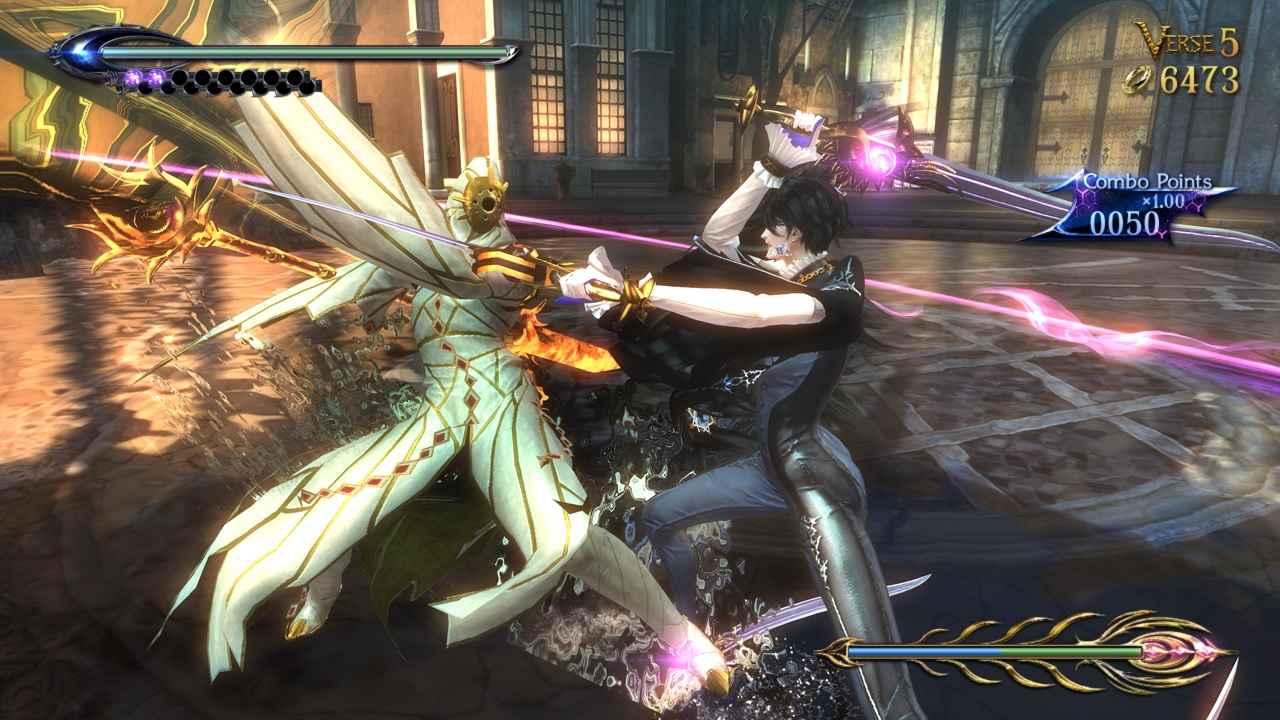
Prove the Doubters Wrong
While Nintendo, unsurprisingly, stuck with what works in 2014, the studio also did what many said they could not, or simply would not, do – make a triple-A, mature title more focused toward the “hardcore” gamer. In October of 2014, Nintendo, along with Platinum Games and SEGA, released Bayonetta 2 exclusively for the Wii U as a darker departure for what was commonly lambasted as a “child's system.”
The accolades streamed forth like magic from the witch’s hair. Critics lauded the attack system that built upon the original for the PlayStation 3 and Xbox 360, calling it easy to learn but challenging to master. The over-the-top visuals and boss fights were made of legends, and it was all on the Wii U, gamers cried incredulously, as if a bona fide triple-A title couldn’t possibly exist on the machine. To top it off, Nintendo doubled down on the title, porting the original Bayonetta to the Wii U as well for those who had missed out on the seventh-generation versions.
Bayonetta 2's sway holds strong, as the game currently holds a 91 out of 100 on Metacritic. It’s a victory Nintendo desperately needed, and third-parties slowly began to take notice, especially of the sales numbers. Though sales figures have been hard to pin down, estimates show that the title sold far better in the Western markets than in Japan, a reversal of the common sales pattern for many Nintendo offerings. The Umbran Witch provided the industry the proof that it was looking for that the “hardcore” game can, in fact, survive and succeed on a Nintendo console.
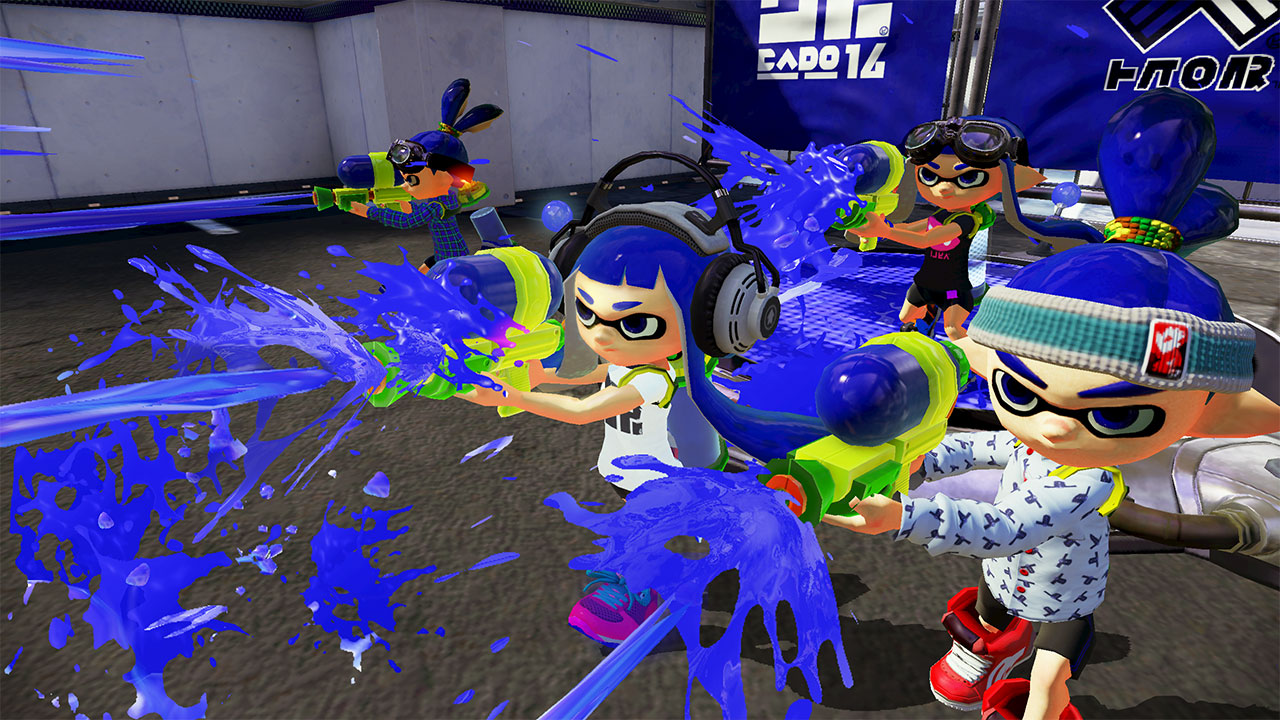
The N is for N-ovation
Now that Nintendo has cemented the Wii U as one of the players in the big race, it’s time for Nintendo to do what they do best: innovate. Launching their newest IP, Splatoon promises to bring the world of the 3rd person shooter to a more accessible group, covering the world around the squid-kids in bright oranges, blues, and pinks. The title will force Nintendo to push the envelope on the one area they still stand to improve – online functionality. The risk of a new IP plus the challenge of improved online play make Splatoon a high-risk, high-reward venture.
On the 3DS and New 3DS, Nintendo aims to twist history with Code Name S.T.E.A.M., the strategic RPG featuring historic figures such as Abraham Lincoln in an alternate steampunk history. The idea of alternate histories may seem like an unusual track for Nintendo, but it worked recently for Irrational Games and BioShock Infinite. Anything is possible with the Big N behind the wheel. The addition of Fire Emblem amiibo to the game via the New 3DS will likely bring some curious fans of Marth, Ike, and the rest of the Fire Emblem cast to see what the new IP is about, something Nintendo is banking on with the cross-franchise amiibo capability.
Additionally, Nintendo plans on reaching out with a franchise that hasn't seen a lot of action in recent years, the long-awaited next entry in the StarFox series. Generally a safe bet, Nintendo has shown that they’re willing to play with formula when it comes to Fox, Falco, and the rest of the StarFox team – StarFox Adventures jumps to mind, for better or for worse – but the series die-hards have been clamoring for a new entry for quite some time. A successful StarFox title could regenerate interest not only in the franchise, but potentially space shooters as a whole; with innovative integration of the Wii U's Gamepad, it could give yet another bump to the eighth-gen Nintendo machine that many wrote off years ago.
Nintendo has the added benefit of being on both the software and hardware sides of the fence, and know how to best utilize the hardware they've come up with. Already announced in Nintendo Direct footage, Mario vs. Donkey Kong: Tipping Stars not only will feature cross-platform play, but cross-platform purchasing as well – buying for either the Wii U or the Nintendo 3DS will open the game up for play on both systems. Success in this arena could open up many more eShop titles to cross-platform purchasing, which could be potentially big news for indie studios developing on Nintendo consoles.
Nintendo also knows how to strategically market to their fanbase. Their loyalty program, Club Nintendo, is set to undergo a needed revamp, after about a half-year of less-than-stellar benefits. Additionally, Nintendo Direct, Nintendo's series of small, available-to-the-public streamed press events, break down the usual barriers and present Nintendo's latest and greatest directly in front of the consumer, giving the gamer direct access, and often giving Nintendo more immediate feedback on their offerings.
And then, of course, there’s this whole Zelda U thing generating some buzz. It’s kind of a big deal.
